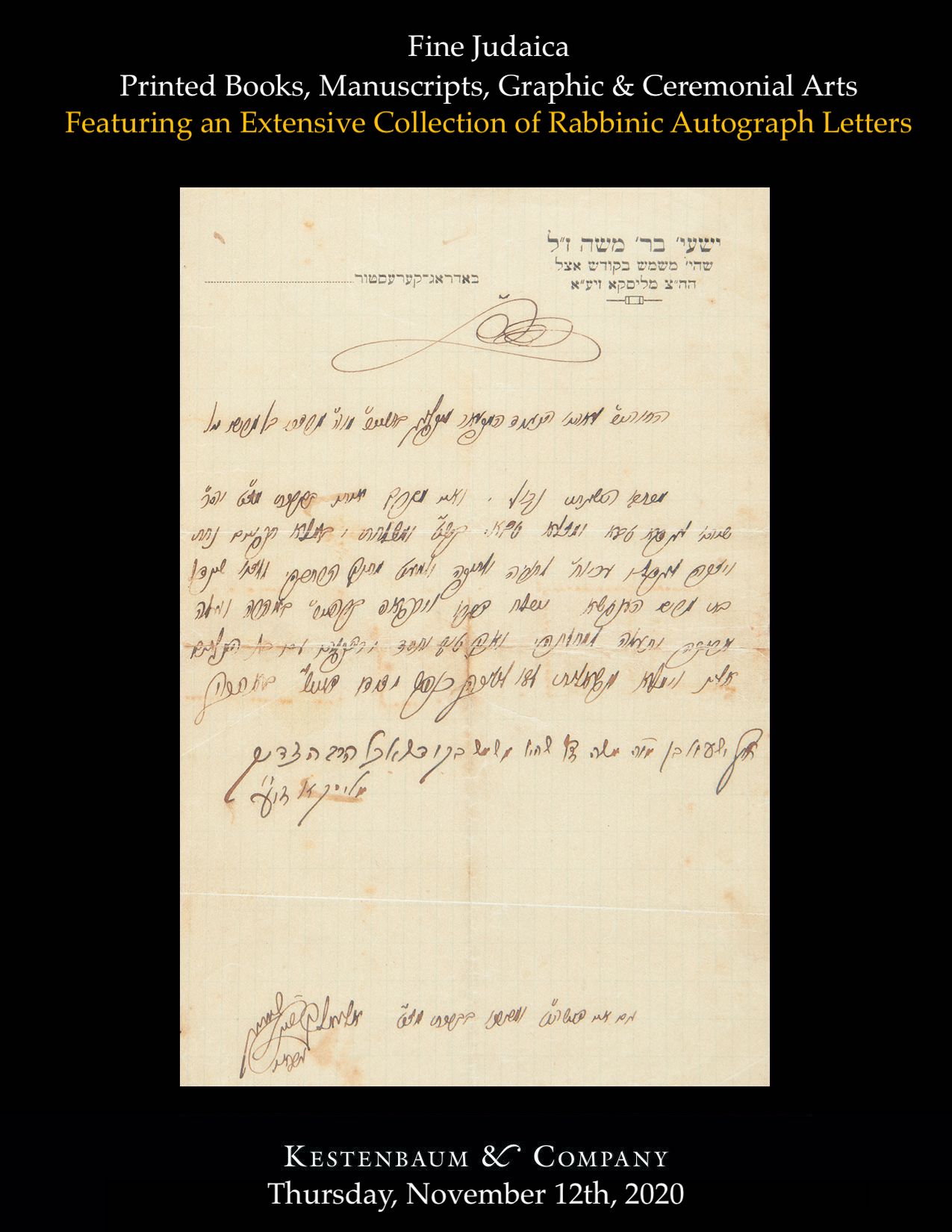The Jewish Manual; Or, Practical Information in Jewish and Modern Cookery, With a Collection of Valuable Recipes & Hints Relating to the Toilette. Edited by a Lady.

Auction 91 |
Thursday, November 12th,
2020 at 1:00pm
Fine Judaica: Printed Books, Manuscripts, Graphic & Ceremonial Arts Featuring an Extensive Collection of Rabbinic Autograph Letters.
Lot 154
(COOK-BOOK).
The Jewish Manual; Or, Practical Information in Jewish and Modern Cookery, With a Collection of Valuable Recipes & Hints Relating to the Toilette. Edited by a Lady.
London: T. & W. Boone 1846
Est: $5,000 - $7,000
<<The First Kosher Cook-book in the English Language.>>
The anonymous author was in fact the noble lady, <<Lady Judith Montefiore,>> wife of the celebrated Sir Moses Montefiore of Ramsgate.
In this significant book Lady Judith sought to elevate home cooking with social polish while remaining true to the tenets of Jewish practice. Additionally she intended that her cook-book would attract the attention of “those ladies not of the Hebrew persuasion” by providing them with recipes for sophisticated fare that was only incidentally Kosher.
Offered here are recipes for traditional Jewish dishes as well as those that reflect the wider culture in which English Jews lived, as could be found “at all refined modern tables.” Given that fashionable Victorian tables were often groaning with prohibited foods, including elaborate combinations of dairy and meat, shellfish, and pie crusts made with lard, the author had at hand a tall task. Perhaps more important than the recipes themselves is the fact that Lady Judith served a message that one can be “genteel without being Gentile.”
Lady Judith Montefiore belonged to what historian Todd Endelman calls “England’s upper-upper-middle-class.” Although the Jews of England were not permitted to stand for Parliament until the Emancipation Act of 1858, they nonetheless enjoyed all other civil rights in full and certainly prized a higher social status than Jews were able to attain elsewhere in Europe.
Also includes information on: “The Complexion, the Hair, the Teeth, Hands and Nails, Dress, Diet and the Influence of the Mind as Regards to Beauty.”
